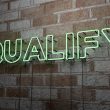A conviction for DUI/DWI (driving under the influence/driving while intoxicated) can have a significant financial impact. Jail time or the loss of driving privileges may cause an interruption or termination of employment. Stiff fines are usually part of a DUI penalty. The addition of court costs and surcharges make those fines even more difficult to pay.
A DUI that causes property damage or personal injury compounds the driver’s financial hardship. When the driver’s insurance coverage is inadequate, the driver might face a civil judgment. The criminal court that hears the DUI case may also require the driver to pay restitution, including medical bills or the costs of repairing damaged property.
Bankruptcy does not provide a perfect solution to a DUI defendant’s financial woes, but there are times when a bankruptcy might help. In most cases, it makes sense to deal with the DUI before filing bankruptcy. On the other hand, it might make sense to file bankruptcy before a civil suit arising out of a DUI produces a judgment. Since civil suits usually proceed more slowly than DUI prosecutions, you should be able to work with your DUI defense law firm and your bankruptcy firm to decide upon the best time to file bankruptcy.
DUI Fines and Restitution
A chapter 7 bankruptcy cannot discharge (wipe out) fines or penalties that are owed to the government. A chapter 13 debt repayment plan cannot discharge any unpaid portion of a fine imposed in a criminal case. Filing bankruptcy under either chapter will not get rid of a fine imposed in a DUI/DWI prosecution.
Bankruptcy laws governing restitution are the same as the laws governing fines. For that reason, you cannot discharge an obligation to pay restitution that is imposed as part of a DUI/DWI sentence.
Civil Judgments
If your insurance does not pay a personal injury claim that resulted from a DUI accident, the injured party can sue you and (if the lawsuit is successful) can take a judgment against you for medical expenses, pain and suffering, and other damages that are proved in court. A judgment will become a lien against any real estate you own. Assuming it is clear that the judgment resulted from a DUI accident, the judgment cannot be discharged in bankruptcy.
Fighting the DUI is one way of protecting yourself. While you can be found responsible for a DUI accident in a civil case even if you beat the DUI charge in criminal court, you put yourself in a better position to argue that the accident was not caused by DUI if you avoid a DUI conviction. If a judgment is entered for personal injury damages that were not clearly caused by a DUI, you may be in a position to seek a discharge of that judgment in bankruptcy. Your bankruptcy attorney can help you decide whether you will prevail if your attempt to discharge the judgment is contested.
You have a better opportunity to discharge a judgment for property damage caused by a DUI accident. The Bankruptcy Court will probably conclude that the act of drunk driving was “willful or malicious.” If it does, the judgment for DUI property damage cannot be discharged in a chapter 7 bankruptcy. You may, however, be entitled to a discharge of the judgment at the conclusion of a chapter 13 bankruptcy, even if the judgment was not paid during the course of the chapter 13 plan.
Other Bankruptcy Strategies for DUI/DWI Debt
If you lose your job because of a DUI/DWI conviction, bankruptcy may help you get back on your feet. Although you cannot discharge a criminal fine in bankruptcy, you may be able to pay the fine with a credit card and then discharge the credit card debt. Talk to your bankruptcy lawyer about whether that strategy will work for you.
While you cannot discharge restitution or personal injury judgments that arise from DUI accidents, you can include those debts in a Chapter 13 debt repayment plan. Chapter 13 provides for repayment of debts under the Bankruptcy Court’s supervision over a 3 to 5 year period. While the plan is in effect, no effort to collect the restitution or judgment (such as wage garnishment) can be undertaken.
Your bankruptcy attorney can help you structure a Chapter 13 plan that provides for monthly payments until the debt is paid. If you cannot pay restitution or a judgment in full within 5 years despite making a good faith effort, you may be able to file a new Chapter 13 plan to give yourself another 5 years during which no other attempt can be made to collect the debt.




